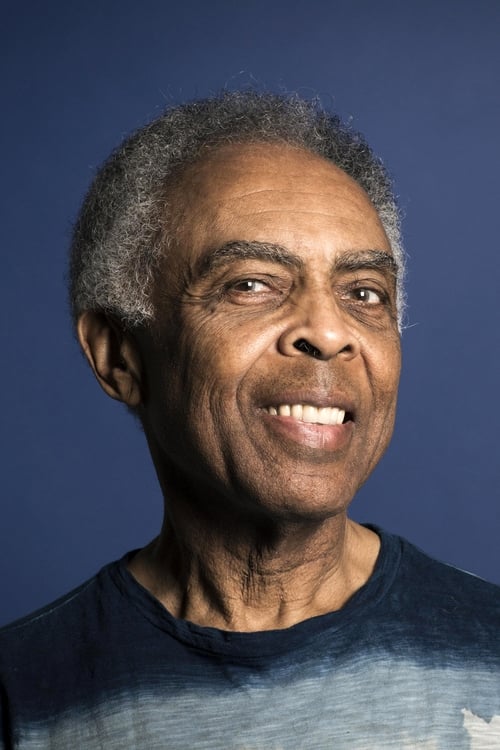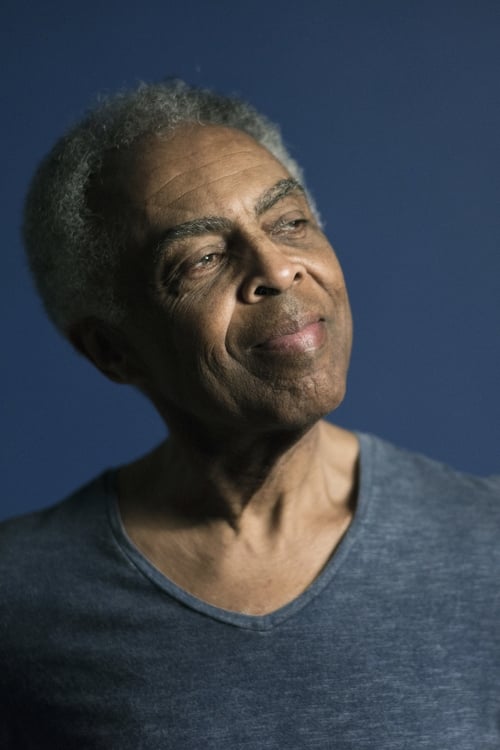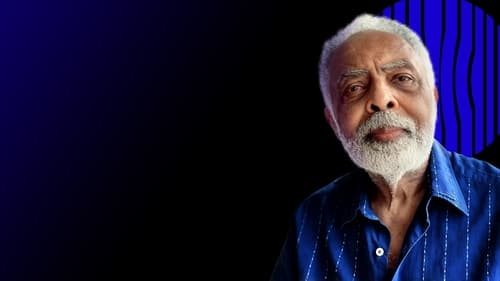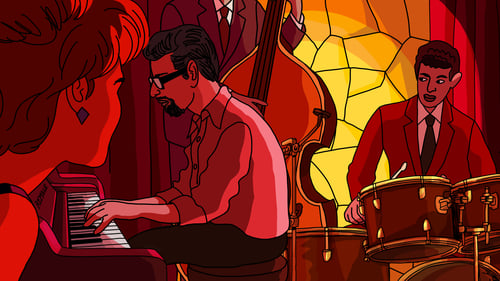
Self (voice)
Нью-Йорк, 2010 год. Джефф Харрис, музыкальный журналист, намеревается раскрыть правду о Франсиско Тенорио Хуниоре, молодом бразильском пианисте самба-джаза, который исчез в Буэнос-Айресе 18 марта 1976 года.
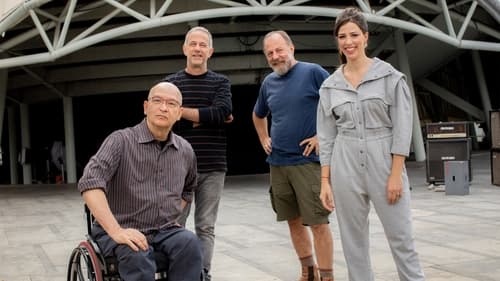
Self
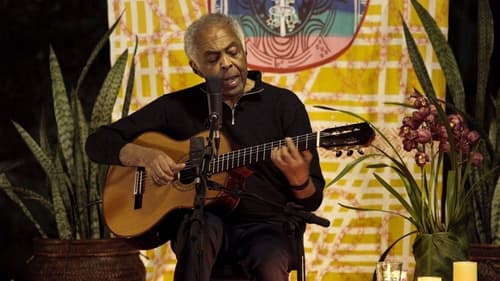
Self
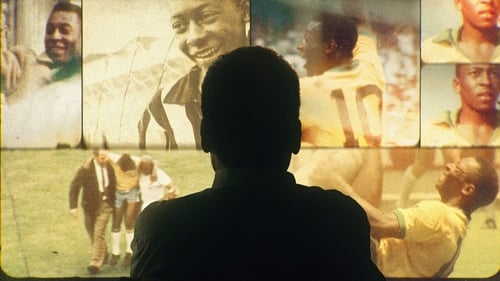
Self
От выдающегося таланта до звания национального героя: этот документальный фильм рассказывает о невероятном пути, пройденном Пеле в непростое для Бразилии время.

Himself
Through clippings, the film draws a narrative line between the construction of racism in Brazil and the United States, having as base the European invasion of the continent, police violence, the genocide of the black people, the massacre of indigenous peoples, religious violence, the criminalization of funk music, structural racism in art and education, the importance of quota policy and the need urgent historical repair as a commitment by the Brazilian state to the black people.

Music
On March 16, 2020, in Brasília, an anonymous and unknown Haitian challenged the head of the nation: “Bolsonaro, it’s over. You are not president anymore.” This film poem counterpoints this situation with two military operations of Minustah (United Nations Stabilization Mission in Haiti), commanded by Brazil, on july 6, 2005, and december 22, 2006, in Cité Soleil.

Ele Mesmo

Himself

Himself
The documentary goes through works composed by the Bahian musician between 1968 and 1987. Brazilian musician Gilberto Gil, one of the most well-known members of the Tropicália generations, revisits some of his most famous works on this documentary.

Self
Singer, composer, actor and painter, Dorival Caymmi was a multiple artist, but what they may not know is his pioneering work in introducing candomblé into Brazilian popular music. Recreating in a poetic way concepts present in Caymmi's work and life, the documentary revelation of the artist from his own lines, mined in old magazines.
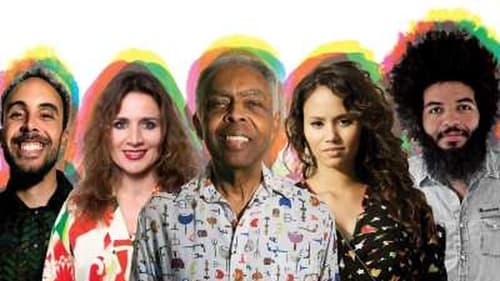
Himself

Self
The life and career history of singer and percussionist Jackson do Pandeiro, whose originality and unusual rhythmic quality influenced several prominent artists in Brazilian popular music. With unpublished testimonies from professional colleagues and family members, as well as archival footage of their participation in cinema and radio, the documentary traces their journey between troubled relationships, dramas, controversies, stardom, ostracism, the return to the artistic milieu, even his death in 1982.
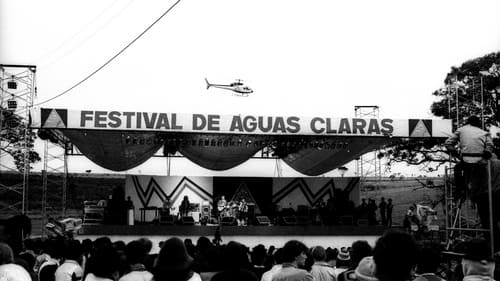
Himself
Participants recall a series of festivals held on a farm in Brazil during the '70s and '80s that evolved into liberating celebrations of music.

Ele mesmo
Chico and Ana move to an apartment in São Paulo. As they unpack Ana found a cassette tape. It's a mix-tape that Clarisse made 20 years earlier to her husband Daniel. Albeit separated by time, both stories will cross paths in a unique way.

Self
Dorival Caymmi was one of the inventors of the Bahian imagination. In his 94 years of life, Caymmi composed, sang, wrote, illustrated and thought about his Bahia, even far from it. His family, partners, friends and fans remember his history, which made him one of the pillars of Brazilian culture.
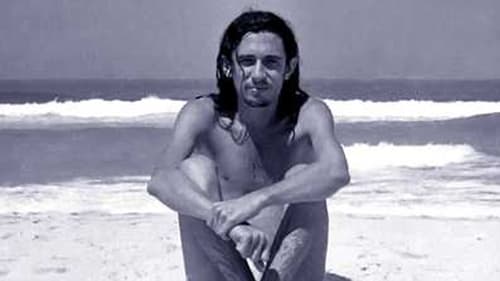
Self
The story of Brazilian poet Torquato Neto, who lived passionately through fracturous times and worked in several fields, including music, journalism, and cinema. He was an active participant in the revolution of Tropicália and marginal art, which changed the course of Brazilian culture in the 1960s and 1970s, until he committed suicide on his 28th birthday.

Self
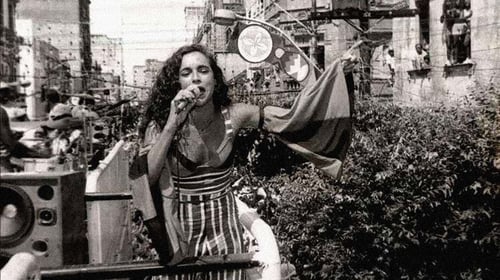
Self - Cantor e Compositor
Originally from Bahia and considered today one of the most globalised musical movements in the world, Axé is a musical rhythm that carries in its essence a good part of all the musical and cultural syncretism of Bahia. The documentary brings together interviews and archive images outlining the birth of Axé.
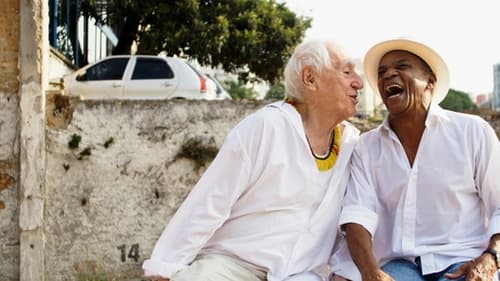
Self
This documentary investigates the aesthetic, political and existential trajectory of emblematic Black Brazilian actor Antônio Pitanga. He career spans over five decades, and he has worked with iconic Brazilian filmmakers Glauber Rocha, Cacá Diegues and Walter Lima Jr. He was a prominent figurehead and outspoken activist during the Brazilian dictatorship, a period of unrest in Brazilian cinema. Pitanga deep dives into the world of Antônio and the history of Brazil. The documentary was directed by his daughter Camila Pitanga, one of widely recognised faces in Brazilian television and cinema right now. The film is also a poem, and a tender ode to fatherhood.

Afonsinho, Paulo Cézar Caju and Nei Conceição started their careers in the mid-1960s, a time of strong political repression in Brazil. Originally teammates of a celebrated generation of the Botafogo football team superstars, they did not give up their freedom when the military dictatorship decided to take control of the field.

Himself
With fireworks forming the word “Rio” in the sky and supermodel Gisele Bundchen shimmering to the tune of “The Girl from Ipanema,” Rio de Janiero welcomed the world to the first Olympic Games in South America with a serious message underlying the celebration: Let’s take care of our planet.

The lives of Luhli and Lucina, two especially important artists in the alternative cultural scene during the 1970s. In a time when transgression, love and peace guided behavior, we discover the love of two women for art, their spiritual universe, their lives in community and their three-way relationship with photographer Luiz Fernando Borges da Fonseca.

Self
Rogério Duarte is one of the most important names in Tropicália, a Brazilian cultural movement of the 1960s. The plastic artist was one of the first to publicly denounce the tortures committed in the military regime. During the dictatorship, its political action and its cultural achievements mobilized many artists and inspired a whole generation.

In 1982, the Arpoador Beach, in Rio de Janeiro, received the first "incarnation" of Circo Voador, a venue for artists of diverse aspects showing their art to the public. Months later, Circo landed at Lapa, the city's most bohemian neighborhood. Today, more than three decades later, the venue has become a cultural reference in the country. This documentary is directed by Tainá Menezes and has testimonials from artists such as Gilberto Gil, Lobão, Evandro Mesquita and more than 50 personalities that were part of the history of Circo Voador.
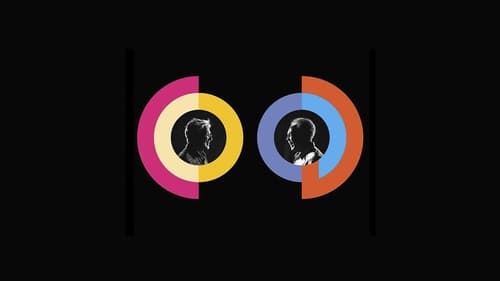
Self
Two of the biggest names in 20th century pop music together on stage, accompanied by their guitars. In "Two Friends, A Century of Music", Caetano Veloso and Gilberto Gil celebrate their 50 years of career by retaking the partnership on stage. In simple and intimate arrangements, Gil and Caetano celebrate brilliant trajectories that began in the same place: Bahia. It was from the friendship that began at the time that they were students, that the two singers and composers gave origin to a partnership that, years later, would base one of the most expressive movements of Brazilian art, Tropicália.

Self
Based on the autobiography of noted music executive André Midani, André Midani — An Insider’s Story of Brazilian Music (2015) explores Brazilian music throughout his five-decade career through informal gatherings and jam sessions at his home, featuring Caetano Veloso, Jorge Ben Jor, Gilberto Gil, and Marisa Monte, among other luminaries of the industry.
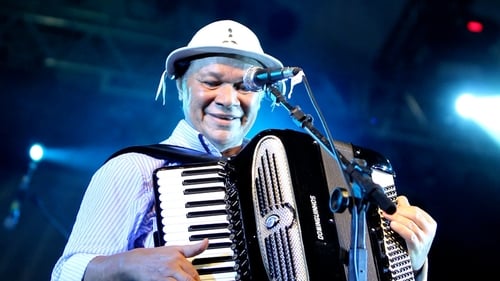
Through rare and precious footages and gigs with great artists such as Gilberto Gil, Gal Costa, Hermeto Pascoal, Djavan, Nara Leao, Luiz Gonzaga, among many others, "Dominguinhos" reveals this genius of Brazilian music, creator of a deeply authentic, universal and contemporary work. The film values the sensory cinematic experience, a journey driven by Dominguinhos his own.

Gilberto Gil
A documentary on the restoration of Rogério Sganzerla's 1970 film "Copacabana, Mon Amour".
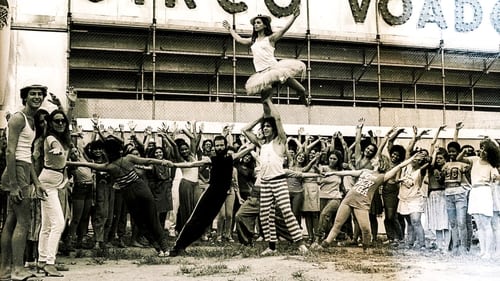
Self
This documentary highlights the evolution of Brazil's Circo Voador venue from homespun artists' performance space to national cultural institution.
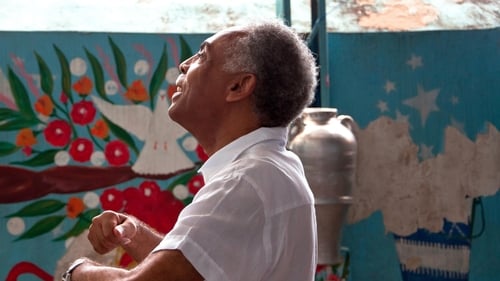
Gilberto Gil is among Brazil's most famous musicians, having influenced an entire generation in South America and beyond. Now in his seventies, he is serving as Brazil's first black Minister of Culture. Preoccupied with many realities of the modern world, such as racism and poverty, he embarks on a tour through the southern hemisphere— from aboriginal communities in Australia and the townships of South Africa, to the Brazilian Amazon— seeking to promote the power of cultural diversity in a globalized world.

himself
Festive Land examines one of the largest and most extraordinary popular celebrations in the world, the week-long Carnival that brings more than two million people to the streets of Salvador, the capital of Bahia, in northeastern Brazil. Carnival is the most expressive showcase of the unique cultural richness of Bahia, where African culture has survived, prospered, and evolved, mixing with other Brazilian influences to create forms found nowhere else in the world. The film captures this unique cultural energy through extraordinary footage of musical performances, dances, religious manifestations, and street celebrations. At the same time, Carnival reflects the racial and social tensions of Brazil's heterogeneous society. At first glance there appear to be two million people chaotically mixed on the streets, but a more detailed look reveals how patterns of segregation driven by racial, social and economic differences continue in Carnival.

Himself
A look of the 21st century for one of the most important cultural movements in Brazilian history. The production brings a mix of interviews, concerts, artistic interventions and actors in small sketches. An intersection of the social and artistic contexts of 68 with the current one.
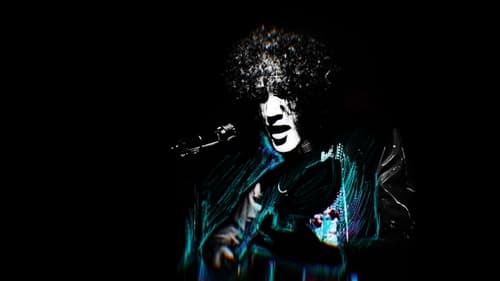
Self
Set against the turbulent atmosphere of the 1960s, Tropicália is a feature length documentary exploring the Brazilian artistic movement known as Tropicália, and the struggle its artists endured to protect their right to freely express revolutionary thought against the traditional Brazilian music of that time.

Self
The film follows the birth of Jorge Mautner up to his 17 years. He was born in Brazil shortly after his parents fled the Holocaust. Raised by a nanny who introduced him to Candomblé, Mautner became a precursor of the Tropicália, contributing to the construction of the identity of Brazilian music.

Self
In his film Rua Aperana 52 Júlio Bressane describes the invention of a landscape, the topology of a corner of Rio de Janeiro. The film consists of a series of photographs taken between 1909 and 1955 by, among others, Bressane's parents at and around the address used as a title. These are interlarded with scenes from films made between 1957 and 2005, bringing the total fictional time the film covers to almost a century; one hundred years in which the winding road featured in almost every shot structures the new landscape behind the Aperana, which means 'wrong road'. Rua Aperana 52 is autobiographical, as it is a landscape from Bressane's youth, but it is also not so; it is more a multi-subjective mythology of a place seen through all those films and photographs. Bressane refers to his editing as an intuitive form of thinking aimed at evoking moods which make the viewer the new witness of the fictional landscape. A fiction about a fiction,

Self
Year-end special brought together three interpreters of Brazilian popular music - Gilberto Gil, Caetano Veloso and Ivete Sangalo - to honour the Brazilian woman.

Self
Caetano Veloso, Gilberto Gil, Jards Macalé and Jorge Mautner recall important moments during the military dictatorship the befell in Brazil from 1964 to 1985. The film presents the events of the prison, life in exile and the return to the country.

Self
2012: Time For Change is a documentary feature that presents ways to transform our unsustainable society into a regenerative planetary culture. This can be achieved through a personal and global change of consciousness and the systemic implementation of ecological design.
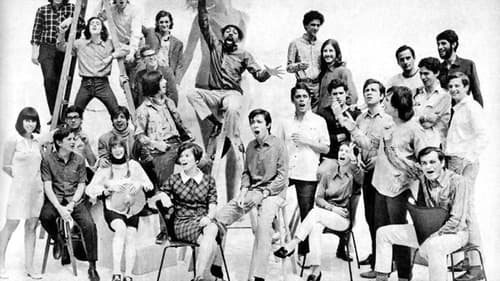
Self
If you thought TV shows in which audiences and juries judge musical acts were a relatively new phenomenon, you'd better think again. In the 1970s, such "festivals" were incredibly popular in Brazil. They were recorded before a live studio audience, and usually featured a number of elimination rounds. They also formed the springboard for the career of many a big-name star, such as Chico Buarque, Caetano Veloso, Roberto Carlos and Gilberto Gil. Appearing on such a program was no cakewalk, however: audiences could be as wild in their condemnation as in their appreciation of an artist. Extensive archive footage (including performances and behind-the-scenes interviews) from a turbulent final of the Festival of Brazilian Popular Music one evening in 1967 paints a fascinating picture, not only of the transformation of Brazilian music into real "festival" music, but also of a society starting to buck against the yoke of military rule.

Himself

(Ele Mesmo)

Himself
Hello, Hello, Terezinha! is a feature-length documentary about the country's biggest communication phenomenon. Politically incorrect, radical, renewing, Chacrinha changed Brazilian television forever and expressed a Brazil that was around it, but was not perceived. The film tells the great adventure of Abelardo Barbosa through the eyes of the presenter. It gathers the nuclei of its constellation - chacretes, fledglings and artists who passed through its programs - to identify their individualities and their emotions.

Self
This documentary from filmmaker Guto Barra takes you beyond the 1960s bossa nova hit "The Girl from Ipanema" to explore how samba, Brazilectro and other Brazilian music styles have long captivated audiences and influenced musicians around the world. Mixing archival footage, fresh performances and interviews with leaders in the global music scene, Barra examines why Brazil's music consistently transcends boundaries of time and musical taste.
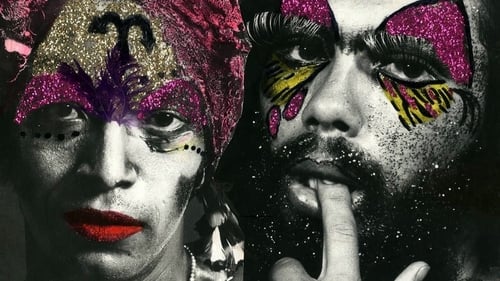
Self
A Brazilian theatre group that through talent, irony and humour confronted the Brazilian violent dictatorship in the 1970s revolutionising the gay movement worldwide and changing theatre and dance language to an entire generation.

Self
Loki brings the trajectory of Arnaldo Baptista from childhood, passing through the most successful phase as leader of the Mutantes, marriage to singer Rita Lee and then separation. He also goes through the depression that devastated his life after the group ended and that led him to attempt suicide, his solo career, rapprochement with his brother and member of the Mutantes, Sérgio Dias, culminating in the band's return in 2006.

Himself
Создатели фильма исследуют аспекты производства медийного контента и авторских прав на него в век цифровых технологий. Они пытаются разрушить стену разногласий между производителями и пользователями. В фильме — комментарии политиков, музыкальных критиков и других экспертов.

Self (voice)
Documentary about Brazilian poet Waly Salomão, for whom life was always a fictional film and poetry was a way to expose any naturalistic pretension. His convictions affected many friends like Antonio Cícero, Caetano Veloso and the film's director Carlos Nader, who shoot Waly for 15 years. But how does one do a documentary about someone who believes everything is fiction?

Self
A host of personalities reminisce about the life and work of songwriter, lawyer, and congressman Humberto Teixeira — aka "Baião Doctor" — the author of such classic Brazilian popular songs as "Asa Branca". A musical film about the baião, a movement in Brazilian music in the 1940s and 1950s that was later snowed under by samba and bossa nova.

Himself
This film shines a light at the story of Jards Macalé, polemic artist and controversial character of Brazilian culture over the last four decades. Author of songs such as "Vapor Barato" and "Movimento dos Barcos", a partner in crime of poet Waly Salomão, guitar player and songwriter for Gal Costa and Caetano Veloso, actor and author of soundtracks in Nelson Pereira dos Santos' films, a personal friend of visual artists Lygia Clarke and Hélio Oiticica, but, first and foremost, someone who dreams of seeing the word "love" in the Brazilian flag.

Intérprete

Self
Documentary about the 68-generation, told through the story of the newspaper “O Sol”, one of the first vehicles of the alternative Brazilian press, produced daily for six months, in the 1960s. The newspaper spoke of culture, politics and education through satires and prominent figures in the cultural scene of the time passed through him. Archive scenes and music from the period seek to reconstitute the spirit of the 68-generation. The film has the participation of personalities such as Ziraldo, Zuenir Ventura, Arnaldo Jabor, Chico Buarque, Caetano Veloso, Carlos Heitor Cony, Fernando Gabeira, Betty Faria, Hugo Carvana, among others.

Self
The life and work of one of the most controversial Brazilian musicians, having as its backdrop Tom Zé's 2005 European Tour. The documentary shows a detailed vision of Tom Zé's personal musical universe, in which a guitar and a vacuum cleaner have the same melodic importance. In intimate interviews, he narrates different parts of his life and tells us about his musical debut in the early 60s, his downfall during the 70s, and his 90s comeback.

Self
Afroreggae Cultural Group DVD containing a concert and a documentary about the group's social and cultural work at the favelas in Rio de Janeiro.

Self - Singer 'Formosa'
To celebrate the life and the work of a multifaceted creator – playwright, poet, partner of the most important names of Brazilian pop music and, above all, an enlightened character of the Brazilian cultural history - director Miguel Faria Jr. gathered an incomparable cast of partners, singers, friends and rare images from the archives recalling Vinícius’ genial simplicity, with the spontaneity, the humor, and the freedom of a person chatting over a bar table, exactly how the eternal Vinícius would enjoy.

Self
Brazilian singer Maria Bethania has a 40-year singing career. A documentary shows her concerts and famous family.

Himself
Documentary about Marcel Camus' 1959 film Black Orpheus, its cultural and musical roots, and its resonance in Brazil today.

Original Music Composer
Documentary about Marcel Camus' 1959 film Black Orpheus, its cultural and musical roots, and its resonance in Brazil today.

Self (archive footage)
The biggest Brazilian historical festival of all time. The great cast of the 1973 Phonogram (now Universal Music) meets in three nights to protest against the curtailment of freedom of expression in those dark years of the dictatorship. With the images rescued in 2005, revealing exciting moments, containing the incredible presentations, it brings a team of all greatness and the opportunity to understand the path that Brazilian music has taken to the present day.

Himself
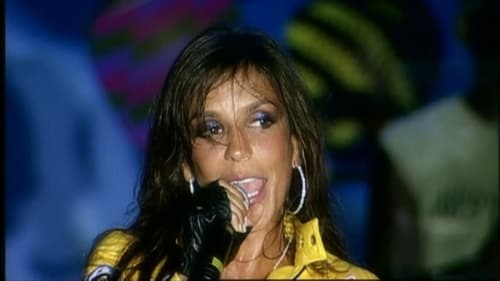
cantor (convidado)
Live performance by brazilian singer Ivete Sangalo recorded at Salvador, Brazil, presented by MTV.

Thanks
This film describes some of CC’s success stories and gives insight into where we’re headed.
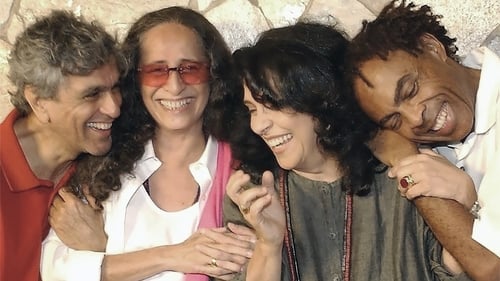
Self
Almost thirty years after the first reunion of Doces Bárbaros (four of Brazil's major popular music stars: Caetano Veloso, Gilberto Gil, Gal Costa and Maria Bethânia), the artists involved decided to get together again for limited concerts in São Paulo and Rio de Janeiro, in December 2002. The film documents the group's live performances, rehearsals and interviews.

Self
Life and legacy of Agostinho da Silva. Traversing the biographical journey, the life and work of the Luso-Brazilian philosopher, this work has testimonies from himself and various personalities of Portugal and Brazil that allow us to unravel his personality and multifaceted thought.

Gilberto Gil's 2002 album combines Brazilian pop with roots reggae. Featuring 11 of Bob Marley's greatest hits recorded in Tuff Gong Studios, Kingston, Jamaica. Includes special guest appearances from members of Bob Marley & The Wailers group. 16 tracks. Warner Music Latina.

Self
Documentary about amazing Brazilian musician Rogério Duprat, main orchestrator of Tropicália, his rehearsals with Gal Costa, Os Mutantes, Gilberto Gil and Caetano Veloso. There's also the first performance of his 1958 "5 Pieces for a Solo Cello" and pieces of the only recording of "Organismo", serial work inspired by a Décio Pignatari's poem.
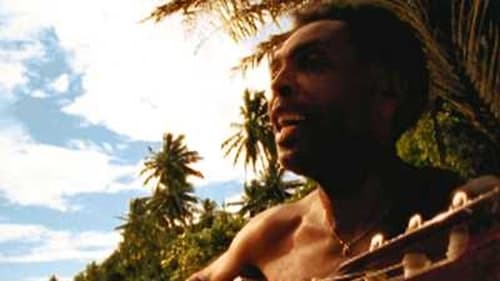
Self
Tempo Rei is the first audiovisual record of Gilberto Gil's vast work, celebrating the artist's thirty-year career, celebrated in 1996. Gil recalls his artistic trajectory, recalls striking facts and reveals some intimacies. Completely filmed on film, it includes great successes of the artist like Madalena, Cores Vivas, Vamos Fugir, Procissão and Expresso 2222.

Self
Documentary about samba musician from Bahia Clementino Rodrigues, aka Riachão.

Self
This is a journey of friendship, an Argentinian is going to rediscover his continent while searching for his friend from Bahia. And while the work, the records and the career of this great lady of Brazilian music are well known, the starting point, the training, the first years remained till now in a vaguely legendary and imprecise blur. Thanks to many investigations that concern as many places as times, thanks to journeys back in time through the towns and regions, the film seeks the origins of Maria Bethânia’s voice and style. Helped and led by Bethânia herself, with the assistance of Caetano Veloso and Chico Buarque, the two princes of Brazilian music, along with the complicity of the great Gilberto Gil, the author is allowed to go to the first context : the North-East. In the family home in Santo Amaro, the film finally touches the childhood of Maria Bethânia – and her brother Caetano, and this mysterious point – from which the music radiates.

Self

The special record for the series Acoustic MTV meets classic in the repertoire of Gilberto Gil as "Stage" tern "," Weather King ", among others. Also check the versions of" The New "and" Sampa ". Provenance: National Studio : Warner Music (Video) Original Title: Gilberto Gil - Acoustic Color: Color Release Year: 2001 Cast: GILBERTO GIL Recommendation: Region free DVD: Multi-Region
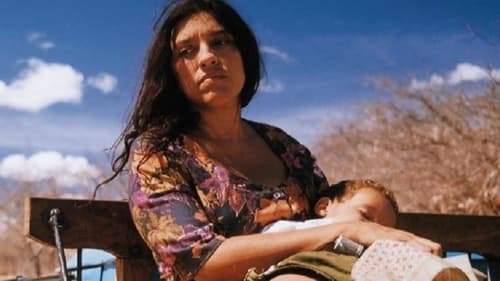
Music
A true story that comically depicts the relationship between an ordinary woman and her three husbands, who live in the same house in a poor and arid small village of the Brazilian northeast.

Inspired by the life of the french-born photographer and ethnographer, Pierre Verger, the movie follows his journey between Bahia, Brazil and Benin, Oriental Africa, showing places and people he met and his life study project: the Candomblé culture.

Silva 5
A detective is hired by a mysterious woman to find her missing husband, a master of disguises, and important industry executive.

Self
Between August 23 and 31, 1983, at the "Circo Massimo", in Rome, there was a musical event that brought together artists from Bahia. This film brings a recording of the event, also featuring backstage, rehearsals, testimonies and some relaxing moments of these great names in Bahia's music.

Self

Sinhô
The history of Brazilian popular music in the 20th Century, focusing specially on the life and works of intriguing singer Mário Reis, a loner who, with his special way of singing - whispering and softly saying the words - in a time when singers with potent voices ruled, was in a way a forerunner of Bossa Nova style.
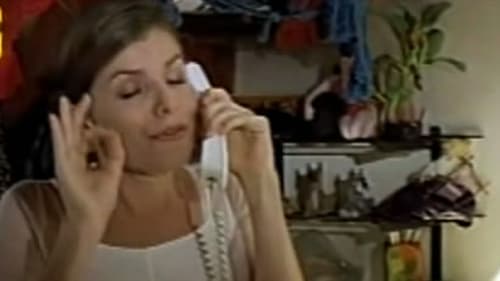
Music
Four love stories which portray a wide gamut of emotions and desires against the backdrop of Rio de Janeiro. "Elephant's Stomp" : the story of a highway patrol officer who is infatuated with a mulatto dancer at a local nightclub. "Drao" : a publicity man and a boutique owner who face a crises in their marriage. "You Are Beautiful" : two homeless teenagers seek love amidst their personal misery. "Samba of the Great Passion" : a book maker who is charmed and captivated by the voice of a female singer coming from a building across the street. Characters in search of love in order to escape from the boredom, loneliness and helplessness of their lives.

Self

Self
A documentary chronicling the life and works of Brazilian poet, songwriter, journalist and avant-garde filmmaker Torquato Neto, from his beginnings to his suicide at the age of 28.

Self
A look into the 25 years of career of famous musician Chico Buarque and his influence in Brazilian culture.

A look at the Brazilian black movement between 1977 and 1988, going by the relationship between Brazil and Afrika.

Himself
Hunting Season deals with the wave of homosexual murders that plagued São Paulo and Rio de Janeiro in the 1980s. With street statements and cultural and artistic figures such, such as Zé Celso, Jorge Mautner, Roberto Piva and others.
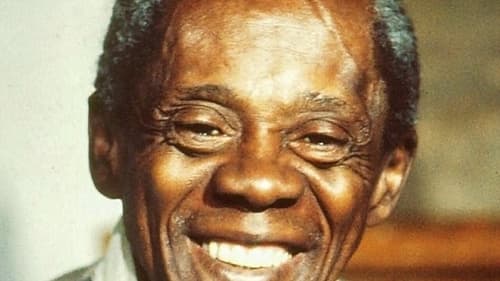
Original Music Composer
Jubiabá is a French-Brazilian film based on the homonymous novel by Jorge Amado. The film tells the story of the interracial love between the daughter of a rich Commander and Antonio Balduíno, a rascal, fighter and famous lover from Salvador.

Music
In this highly stylized Brazilian drama a sax player fondly remembers one wonderful night spent with his life's love and decides to find her again. He embarks upon a quest through the wild streets of Rio to find her. Along the way he meets an assortment of odd urban underworld characters.
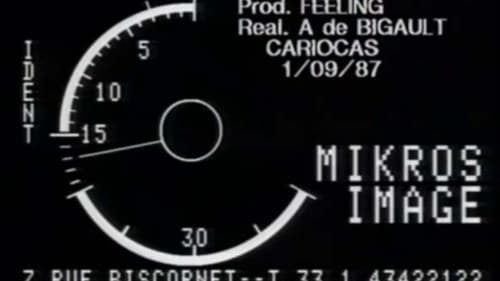
Self
Gilberto Gil talks with friends and share his thoughts, influences and reveal his impact on brazilian music and vision of the black people.
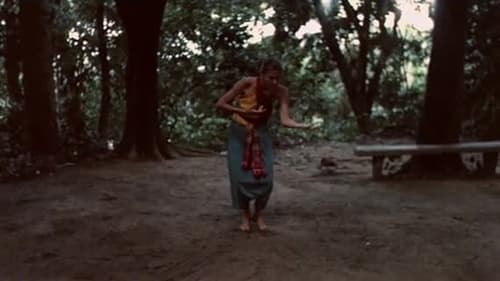
Party Guest
A fragmented style, patchwork of interviews with Caetano Veloso's friends, mixed with conversations, thoughts, scenes of dance and literature excerpts.

Tropicália was a Brazilian cultural movement that occurred between 1967 and 1968, inspired by Oswald de Andrade's anthropophagic ideals, pop art and the concretism. Twenty years later, this film revisits the movement and shows that Tropicalismo will never die.

Original Music Composer
Quilombo dos Palmares was a real-life democratic society, created in Brazil in the 17th century. This incredibly elaborate (and surprisingly little-known) film traces the origins of Quilombo, which began as a community of freed slaves. The colony becomes a safe harbor for other outcasts of the world, including Indians and Jews. Ganga Zumba (Toni Tornado) becomes president of Quilombo, the first freely elected leader in the Western Hemisphere. Naturally, the ruling Portuguese want to subjugate Zumba and his followers, but the Quilombians are ready for their would-be oppressors. The end of this Brave New World is not pleasant, but the followers of Zumba and his ideals take to the hills, where they honor his memory to this day. Writer/director Carlos Diegues takes every available opportunity to compare the rise and fall of Quilombo with the state of affairs in modern-day Brazil.

Ele mesmo

Producer
University teacher investigates the life of a famous Brazilian musician, trying to discover the secret of mass communication through his songs and performances, while ultimately falling in love with one of his groupies.

University teacher investigates the life of a famous Brazilian musician, trying to discover the secret of mass communication through his songs and performances, while ultimately falling in love with one of his groupies.
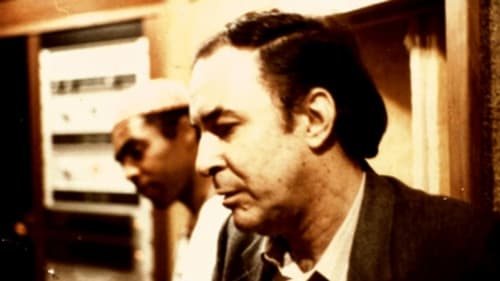
Self
João Gilberto receives Caetano Veloso, Gilberto Gil and Maria Bethânia during the recording of his album Brasil.

Self
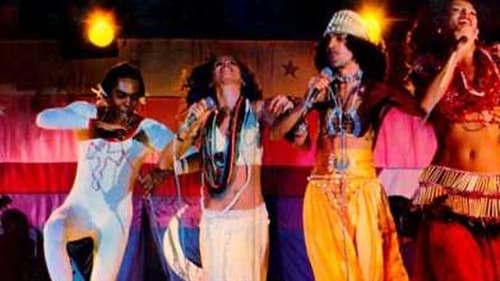
Self
The film records the commemorative tour of the ten years of the career of the Bahia singers Caetano Veloso, Gilberto Gil, Maria Bethânia and Gal Costa, who formed the group with the name of Doces Bárbaros (Sweet Barbarians), at the suggestion of Bethânia. Conceived to present the shows of the live album that would be released (Doces Bárbaros - Live), the documentary changed of tone when registering the arrest and judgment of Gilberto Gil and of a companion by possession of drugs. Gil was forced to go to a detox clinic, and only went out to participate in the programmed shows.

Music
When a prominent U.S. Nobel Laureate arrives in Salvador, Bahia, the city with the largest black population in Brazil, he stirs emotions by championing a long-forgotten local writer named Pedro Archanjo, who believed that humanity would be improved only through miscegenation.

Ele mesmo
In 1975 Gilberto Gil was releasing his album 'Refazenda', and talk a little about it in this interview.

Pã
A colorful feature film that mixes exile with the figure of the poet Rimbaud and the feminist revolution. "It's super-intellectual. A fable-musical-philosophical-chanchada", Mautner says. He also affirms that the work focuses a lot on the longing for Brazil, on the will that the exiled had to return to their homeland. The idea came from conversations between the musician and his old father, "always talking about the pre-Socratics", he recalls. Glauber Rocha states that "The Demiurge" is the best film "of" and "about" exile.

Music
Sônia and her homosexual brother are both believed by their mother to be possessed by the devil. She works as a prostitute in the streets of Copacabana and he’s a servant who falls madly in love with his employer.

Self

Original Music Composer
The confrontations and conflicts between the city of Padre Cicero's pilgrims and the attempts to develop the region.

Self
Through folklore manifestations and diverse artistic expressions, the film is a document that exalts and honors the Bahian culture.

Music
Year 2000. Brazil was partially devastated by the Third World War. An immigrant family arrives in a small town, which they call "I Forgot." The trio is recruited by an indigenist to pretend to be indigenous during the visit of a general. In the dilemma of integrating into the system or preserving individual freedom, the family moves toward disintegration as the city prepares to launch a space rocket.
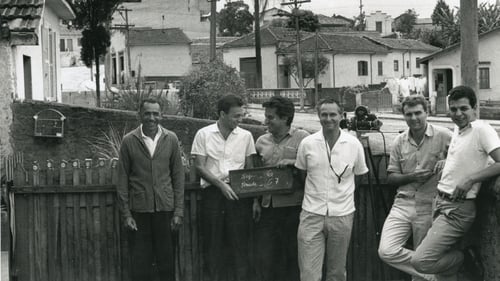
Theme Song Performance
Viramundo shows the saga of the northeastern migrants that arrive in São Paulo, beginning with a train arriving and ending with a train leaving São Paulo in a cycle repeated every day. Viramundo's aim was to question why the military coup d'état in Brazil happened without any popular resistance or revolution or reaction of the society.
